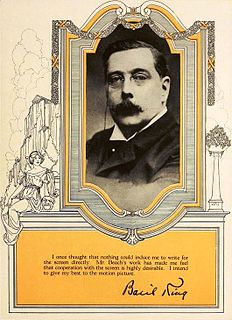A Quote by Simon Greenleaf
It should be pursued as in the presence of God, and under the solemn sanctions created by a lively sense of his omniscience, and of our accountability to him for the right use of the faculties which he has bestowed.
Related Quotes
No man can well doubt the propriety of placing a president of the United States under the most solemn obligations to preserve, protect, and defend the constitution. It is a suitable pledge of his fidelity and responsibility to his country; and creates upon his conscience a deep sense of duty, by an appeal, at once in the presence of God and man, to the most sacred and solemn sanctions which can operate upon the human mind.
Prayer is not appointed for the furnishing of God with the knowledge of what we need, but it is designed as a confession to Him of our sense of the need. In this, as in everything, God's thoughts are not as ours. God requires that His gifts should be sought for. He designs to be honoured by our asking, just as He is to be thanked by us after He has bestowed His blessing.
That his prayer was nothing else but a sense of the presence of GOD, his soul being at that time insensible to everything but Divine love: and that when the appointed times of prayer were past, he found no difference, because he still continued with GOD, praising and blessing Him with all his might, so that he passed his life in continual joy; yet hoped that GOD would give him somewhat to suffer, when he should grow stronger.
We should fix ourselves firmly in the presence of God by conversing all the time with Him...we should feed our soul with a lofty conception of God and from that derive great joy in being his. We should put life in our faith. We should give ourselves utterly to God in pure abandonment, in temporal and spiritual matters alike, and find contentment in the doing of His will,whether he takes us through sufferings or consolations.
How frightful a thing it is for the preacher when he becomes accustomed to his work, when his sense of wonder departs, when he gets used to the unusual, when he loses his solemn fear in the presence of the High and Holy One; when, to put it bluntly, he gets a little bored with God and heavenly things.
We thank Him less by words than by the serene happiness of silent acceptance. It is our emptiness in the presence of His reality, our silence in the presence of His infinitely rich silence, our joy in the bosom of the serene darkness in which His light holds us absorbed, it is all this that praises Him.
To be a holy person means that the elements of our natural life experience the very presence of God as they are providentially broken in His service. We have to be placed into God and brought into agreement with Him before we can be broken bread in His hands. Stay right with God and let Him do as He likes, and you will find that He is producing the kind of bread and wine that will benefit His other children.
The analytical writer observes the reader as he is; accordingly, he makes his calculation, sets his machine to make the appropriate effect on him. The synthetic writer constructs and creates his own reader; he does not imagine him as resting and dead, but lively and advancing toward him. He makes that which he had invented gradually take shape before the reader's eyes, or he tempts him to do the inventing for himself. He does not want to make a particular effect on him, but rather enters into a solemn relationship of innermost symphilosophy or sympoetry.
God is with us to be utilised. His Power, His Love, His Thought, His Presence, must be at our disposal, like other great forces, such as sunshine and wind and rain. We can use them or not, as we please. That we could use them to their full potentiality is, of course, not to be thought of; but we can use them in proportion to our ability.
The evidence of [the] natural right [of expatriation], like that of our right to life, liberty, the use of our faculties, the pursuit of happiness, is not left to the feeble and sophistical investigations of reason, but is impressed on the sense of every man. We do not claim these under the charters of kings or legislators, but under the King of Kings.
God created us in joy and created us for joy, and in the long run not all the darkness there is in the world and in ourselves can separate us finally from that joy, because whatever else it means to say that God created us in His image, I think it means that even when we cannot believe in Him, even when we feel most spiritually bankrupt and deserted by Him, His mark is deep within us. We have God's joy in our blood.































